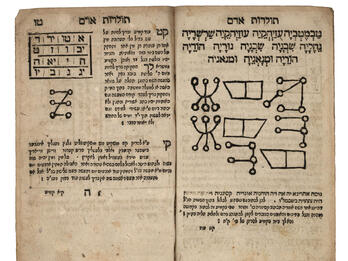Nehemiah Ḥiya Ḥayun
Nehemiah Ḥiya Ḥayun was at the center of one of the great eighteenth-century rabbinic controversies. Born in Bosnia, Ḥayun was raised in the land of Israel and served for a short time as rabbi of Skopje (Üsküb), Macedonia, after which he led a life of wandering. Ḥayun was intimately acquainted with Sabbatean groups. Although his religious position avoided Shabbetai Tzvi’s messianic claims, it was based on principles common to Sabbateanism. Ḥayun was excommunicated by the rabbis of Jerusalem but managed to obtain support in Venice and later in Prague, enabling him to print some of his writings, among them his main work, ‘Oz le-Elohim (God’s Power). In Amsterdam in 1713 a struggle broke out between supporters of Ḥayun and Tzvi Ashkenazi, rabbi of the city’s German community. Ashkenazi excommunicated Ḥayun, igniting great tension between the Portuguese and Ashkenazic communities in the city. Ḥayun managed to annul the excommunication in Constantinople, promising to refrain from teaching, writing, and preaching. However, in the final years of his life he was abandoned by all his former friends. He died in North Africa.



